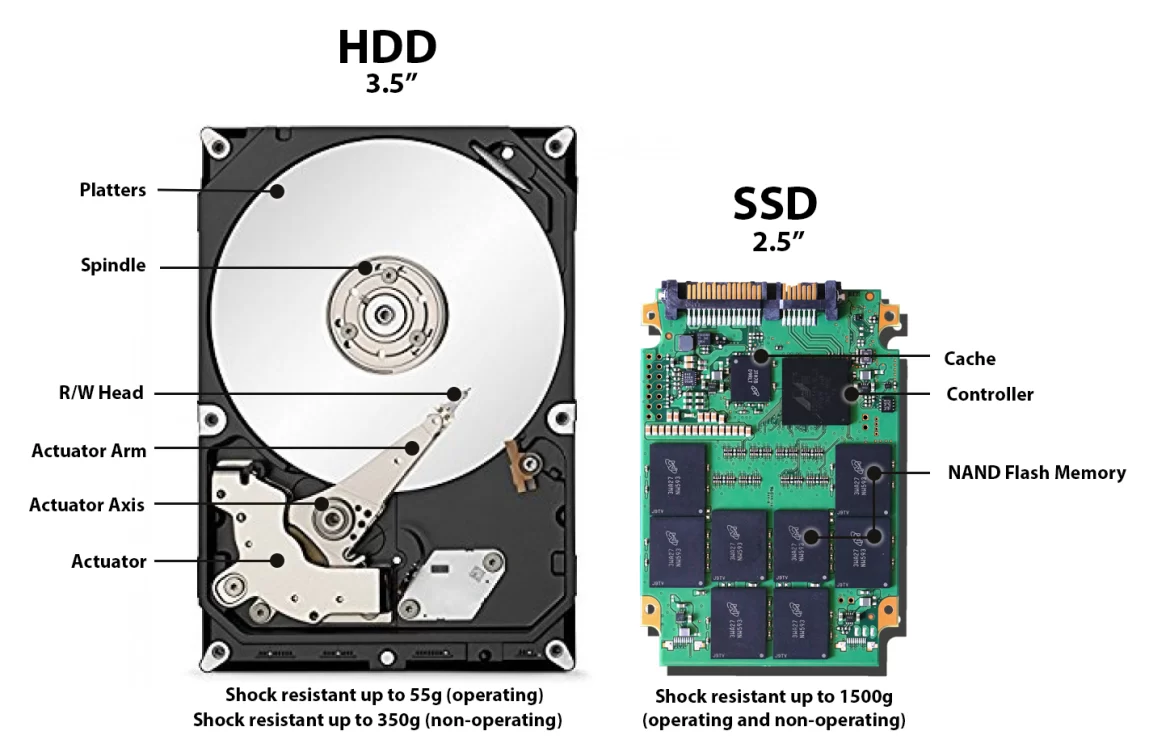When it comes to upgrading your computer’s storage, the choice between a traditional Hard Disk Drive (HDD) and a Solid State Drive (SSD) can be daunting. Both options have their advantages and considerations, so it’s crucial to assess your needs and priorities. In this article, we will compare HDDs and SSDs to help you make an informed decision on which is the better choice for your next storage upgrade.
Performance and Speed
One of the primary considerations when choosing between an HDD and an SSD is their performance and speed. SSDs have no moving parts and rely on flash memory to store data, making them significantly faster than HDDs. They offer faster boot times, quicker file transfers, and snappier overall system responsiveness. On the other hand, HDDs use spinning disks and mechanical read/write heads, resulting in slower performance compared to SSDs. If you prioritize speed and performance, an SSD is the better choice.
Capacity and Cost
HDDs have an advantage when it comes to storage capacity and cost per gigabyte. They offer larger storage capacities at a more affordable price compared to SSDs. If you require a large amount of storage for media files, games, or extensive work projects, an HDD may be the better option for you. However, it’s important to note that SSD prices have dropped significantly in recent years, making them more accessible for higher storage capacities. While SSDs are still generally more expensive than HDDs, the price difference is narrowing.
Reliability and Durability
Another crucial aspect to consider is reliability and durability. Because HDDs have moving parts, they are more prone to mechanical failure, especially if subjected to physical shocks. On the other hand, SSDs have no moving parts, making them more resistant to physical damage. SSDs also have lower susceptibility to temperature and humidity fluctuations. If you are looking for a storage option that offers better durability and reliability, SSDs are the preferable choice.
Energy Efficiency and Noise
HDDs tend to consume more power and generate more heat due to their mechanical components. This results in higher energy consumption and often requires additional cooling measures, which can contribute to system noise. In contrast, SSDs are more energy-efficient, producing less heat and consuming less power. They operate silently, providing a quieter computing experience. If energy efficiency and a quieter system are important to you, SSDs are the better option.
Longevity and Lifespan
HDDs typically have a longer lifespan compared to SSDs when considering the wear-leveling mechanism employed in SSDs. Unlike HDDs that can last for several years, the lifespan of an SSD is linked to how frequently data is written to it. Frequent writing of large amounts of data can impact an SSD’s lifespan. However, modern SSDs have improved durability and longevity compared to earlier models. Additionally, the majority of users may not exhaust the lifespan of an SSD within their typical usage, so it might not be a significant concern for most users.
Conclusion
Choosing between an HDD and an SSD depends on your specific needs and preferences. If speed, performance, reliability, and durability are your priorities, an SSD is the better choice. On the other hand, if you require larger storage capacities at a more affordable price, an HDD may be the more suitable option. Ultimately, it is worth considering the balance between the advantages offered by an SSD and the cost per capacity provided by an HDD. Assess your priorities, analyze your requirements, and make an informed decision on whether an HDD or SSD will be the best choice for your next investment.
